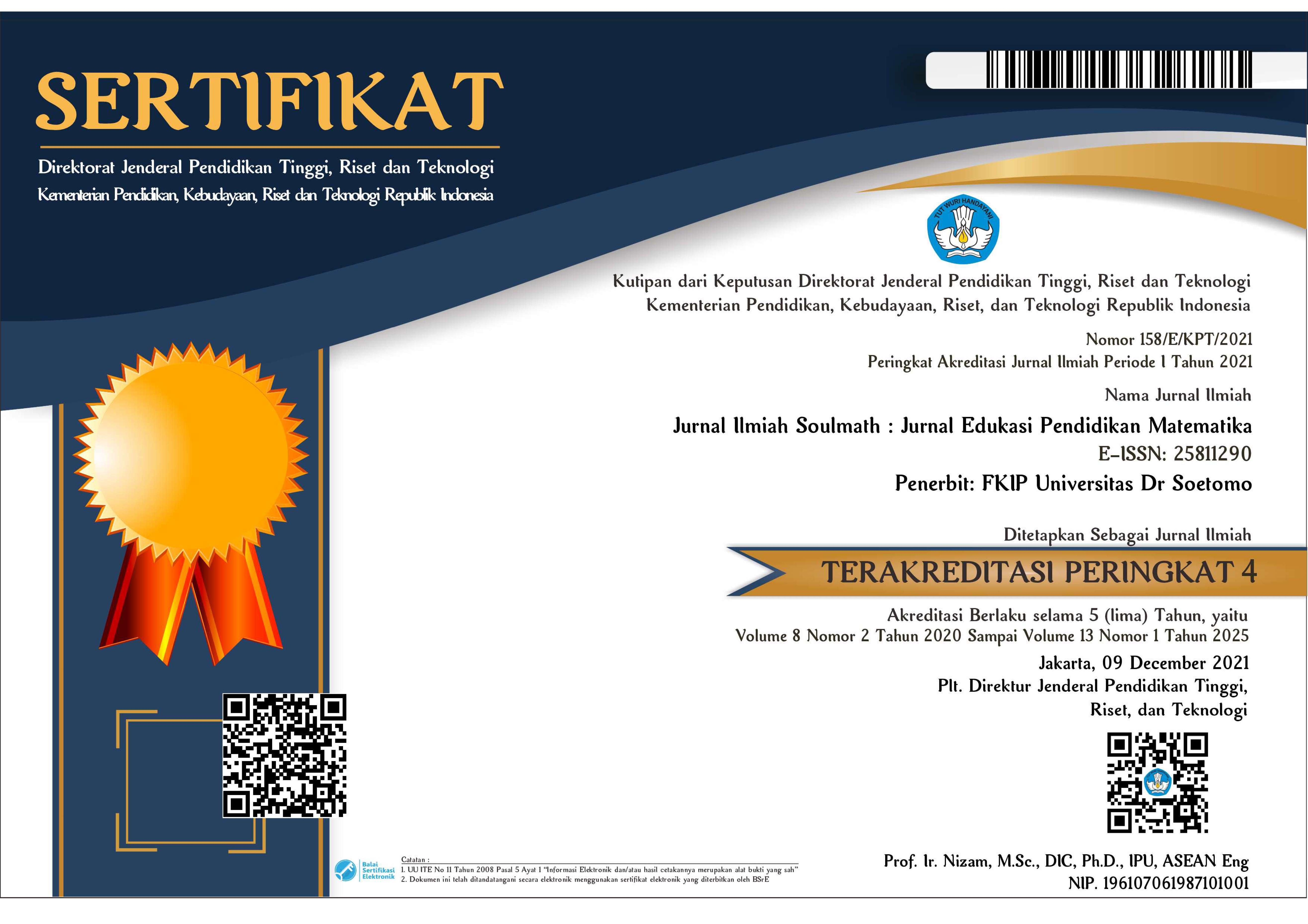PENGARUH KESIAPAN BELAJAR DAN KEMAMPUAN BERTANYA TERHADAP HASIL BELAJAR STATISTIK MAHASISWA STKIP KUMALA LAMPUNG METRO
 Abstract views: 370
,
Abstract views: 370
,
 PDF (Bahasa Indonesia) downloads: 380
PDF (Bahasa Indonesia) downloads: 380
Abstract
This research is aimed to identify the influence of learning preparation and questioning skill toward statistics learning result of STKIP Kumala Lampung Metro Students. The population in this research is all students of Economy education study program who have passed statistics lecture, and the sample is 28 students which are chosen by purposive random sampling technique. The data collecting techniques are done by a questionnaire to knowing the students’ learning readiness and ability to ask quation and documentation method to knowing statistics lecture result. The multiple linear regression is used as data analysis in this research.The research result showed; firstly, there is positive and significant influence of learning readiness toward statistics learning result with 0,376 for the correlation coefficient, 0,142 for the determinant coefficient and = 2,104 + 0,068X1 as the regression equation. Secondly, there is also positive and significant influence of ability to ask toward statistics learning result with 0,387 as the coefficient correlation, 0,149 as determinant coefficient, and = 1,431 + 0,085X2 as the regression equation. Thirdly, in this research also, there is positive and significant influence of learning readiness and ability to ask toward statistics learning result with 0,476 as the correlation coefficient, and 0,227 as determinant coefficient and = -0,936 + 0,052X1 +0,067X2 for the regression equation.
Downloads
References
[2] Slameto, Belajar Dan Faktor-faktor Yang Mempengaruhinya. Jakarta: Rineka Cipta, 2003.
[3] W. Nofiansyah, “Efektifitas Strategi Pembelajaran Siswa Aktif Terhadap Hasil Belajar Matematika Siswa,” e-DuMath, vol. 2, no. 1, pp. 109–115, 2016.
[4] C. Chin, “Student-Generated Questions: Encouraging Inquisitive Minds In Learning Science,” Teach. Learn., vol. 23, no. 1, pp. 59–67, 2002.
[5] O. Hamalik, Metoda Belajar dan Kesulitan-kesulitan Belajar. Bandung: Tarsito, 1983.
[6] S. B. Djamarah, Rahasia Sukses Belajar, Edisi Revi. Jakarta: Rineka Cipta, 2008.
[7] A. Mahendra and A. Ma’Mun, Teori Belajar Dan Pembelajaran Motorik. Bandung: CV Andira, 1998.
[8] J. . Hasibuan and Moedjiono, Proses Belajar Mengajar, 13th ed. Bandung: Remaja Rosdakarya, 2009.
[9] M. Royani and B. Muslim, “Keterampilan Bertanya Siswa SMP Melalui Strategi Pembelajaran Aktif Tipe Team Quiz Pada Materi segi Empat,” EDU-MAT J. Pendidik. Mat., vol. 2, no. 1, pp. 22–28, 2014.
[10] E. Mulyasa, Menjadi Guru Profesional Menciptakan Pembelajaran Kreatif Dan Menyenangkan. Bandung: Remaja Rosdakarya, 2008.
[11] N. Sudjana, Penilaian Hasil Proses Belajar Mengajar. Bandung: Remaja Rosdakarya, 2010.
[12] Trianto, Mendesain Model Pembelajaran Inovatif-Progresif. Jakarta: Kencana Prenada Media, 2010.






